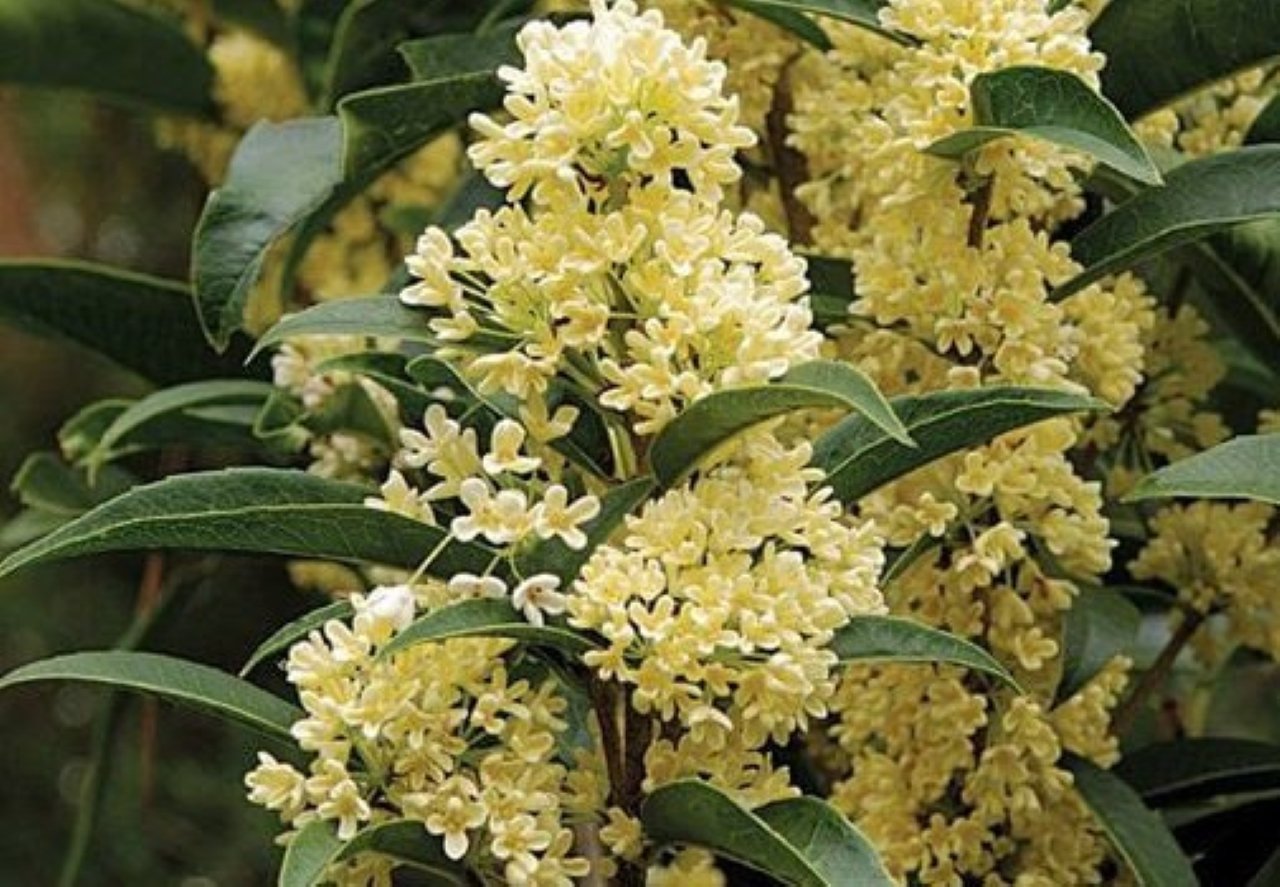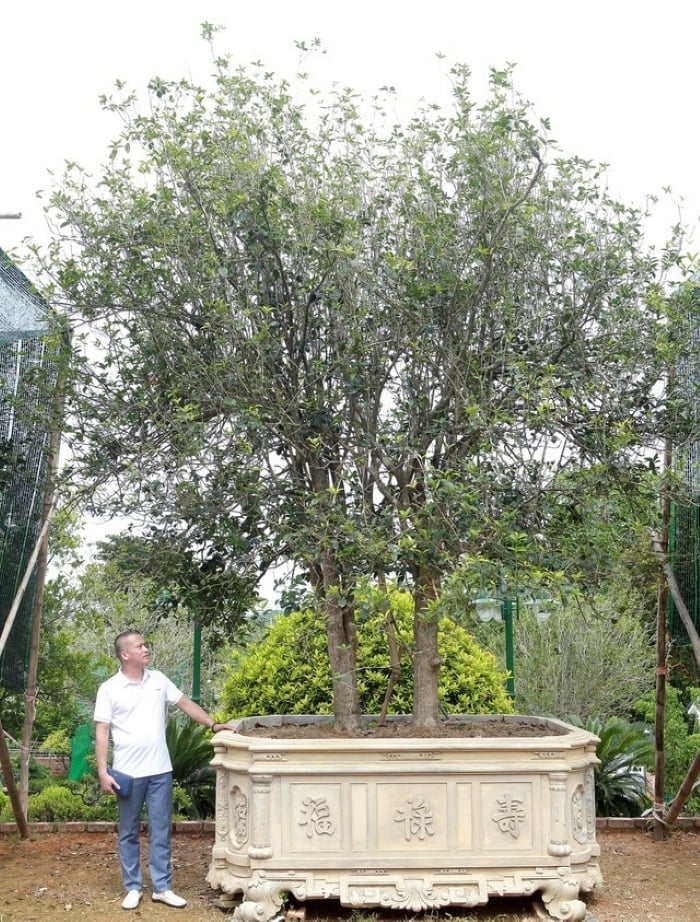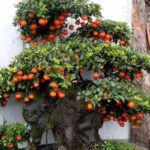Osmanthus trees possess not only positive feng shui implications but also exceptional aesthetic value.
Osmanthus fragrans, commonly known as sweet osmanthus or fragrant olive, is a precious tree belonging to the Oleaceae family. Native to Asia, it is predominantly found in China and Japan.
However, in recent times, this tree has spread to various countries in Europe and North America, and especially Vietnam, where it is present in many provinces.
Given its dual use as a medicinal herb and an ornamental plant, the osmanthus tree has become a highly sought-after commodity by Chinese tree traders in recent years. They have been scouring the northwestern mountainous regions to procure mature trees, leading to a scarcity of aged osmanthus trees in Vietnam.

Osmanthus trees invite good fortune and prosperity
In feng shui, the osmanthus tree is believed to attract wealth and luck, drawing the presence of the God of Wealth. It is thought to bring prosperity and success to the homeowner.
Traditionally, people were advised to plant osmanthus trees in front of their houses to welcome honorable guests, thereby inviting good fortune and blessings for the family.
In Vietnam, the osmanthus tree holds a special place not only as a feng shui ornamental plant but also as a royal offering. Possessing a mature osmanthus tree is a matter of pride for plant enthusiasts and is considered a valuable asset.
The osmanthus flowers, ranging in color from white to yellow, bloom in clusters among the leaves, exuding a delicate fragrance, especially during autumn when they are in full bloom.
Apart from its visual appeal, the osmanthus tree boasts significant medicinal value. According to traditional Chinese medicine, various parts of the tree possess therapeutic properties: the flowers, when brewed into tea, alleviate abdominal pain; the roots treat muscle aches and kidney ailments; and the fruits and bark find application in traditional medicine to promote overall health.
The popularity of the osmanthus tree stems not only from its aesthetic value but also from its resilience in harsh weather conditions and ease of cultivation.
Mature osmanthus trees can fetch prices in the billions.
Given their high economic potential, osmanthus trees have sparked a frenzy in the market, with some specimens selling for billions of dong. Many enthusiasts have gone to great lengths, even exchanging luxury cars, to acquire these aged trees.
In 2017, a tree connoisseur from Sapa, Vietnam, spent nearly 4.5 billion dong to purchase four mature osmanthus trees, underscoring the exceptional value of this species.
Bui Duc Dung, a renowned tree enthusiast from Viet Tri, Phu Tho, is known for his passion for traditional tree species such as tea, osmanthus, and bonsai trees.

Bui Duc Dung’s Majestic Osmanthus Tree
Among his collection of aged osmanthus trees is a unique pair named “Huynh De” (“Brothers”), which are exceptionally rare and hold immense value. Despite receiving an offer of 3 billion dong, Dung chose not to sell them, opting to keep them as part of his collection.
“In the past, only the wealthy and privileged, such as royalty and high-ranking officials, could afford to grow osmanthus trees. The fragrant flowers were often used for brewing tea and held numerous other benefits,” Dung shared.
The high demand for osmanthus trees in China and their increasing scarcity in Vietnam due to the activities of Chinese tree traders highlight the significance and value of these majestic trees.
“The Hidden Significance of Succulent Plants in Feng Shui”
Succulents, or fat plants as they are sometimes affectionately known, are a popular choice for many gardeners and plant enthusiasts. These small, yet captivating plants boast an array of unique and beautiful leaves that set them apart from other flora. With their compact size and easy-going nature, they have earned a special place in the hearts of many, becoming a beloved addition to homes and gardens alike.
The Golden Treasure: A Rare Find for Abundance and Prosperity
Do you know of a houseplant that is considered a “family heirloom”, bringing luck and prosperity to the household? The Golden Orange Tree, or ‘Hong Da’ as it is often called, is this coveted plant. With its branches laden with golden, shimmering oranges, the Hong Da is an exquisite sight and a symbol of opulence and wealth.






































